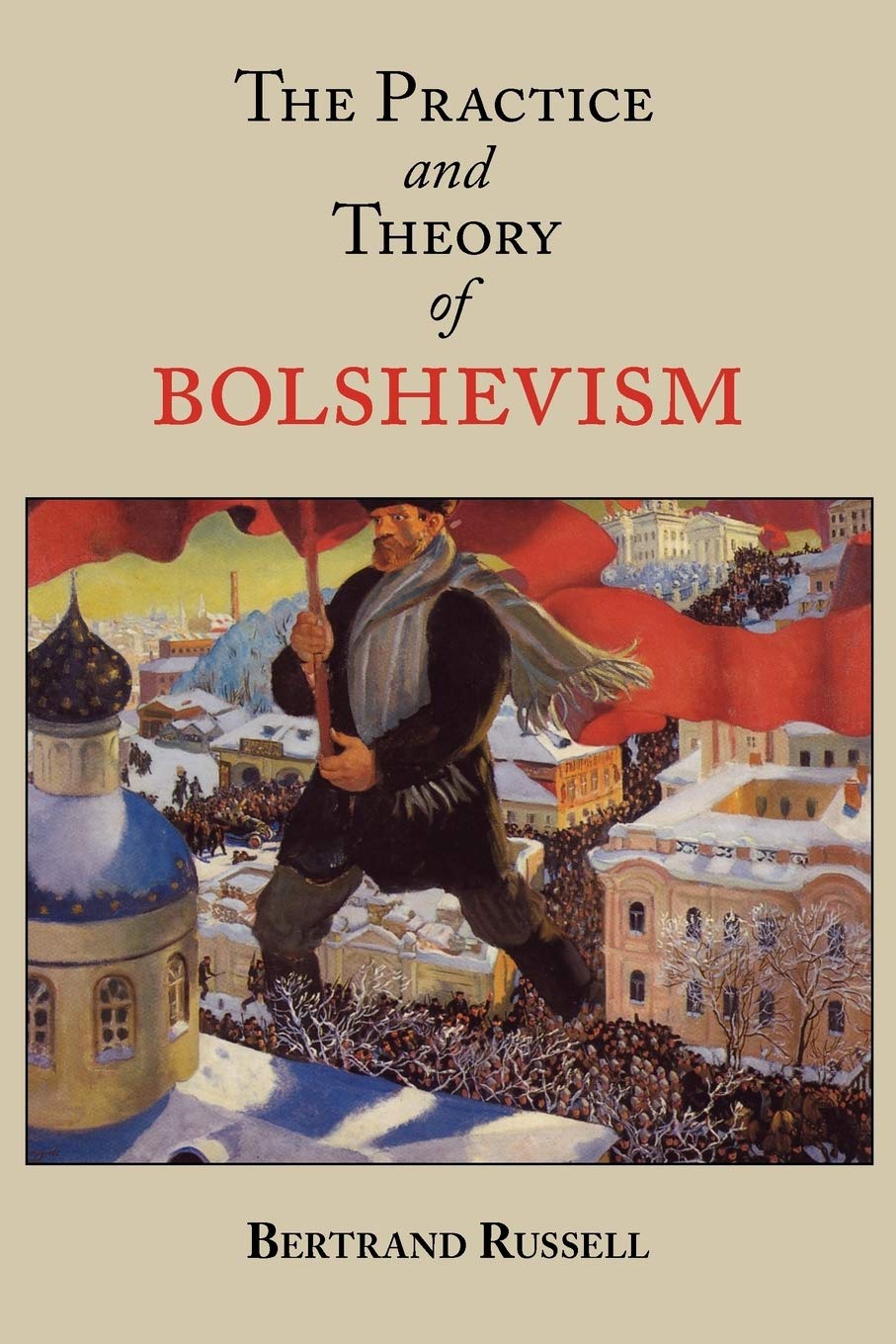Newly released
This book is new and will be uploaded as soon as it becomes available to us and if we secure the necessary publishing rights.

The practice and theory of Bolshevism Book PDF
(0)
Author:
Bertrand RussellNumber Of Reads:
62
Language:
English
Category:
fieldsSection:
Pages:
196
Quality:
excellent
Views:
645
Quate
Review
Save
Share
Book Description
The Practice and Theory of Bolshevism, first published in 1920, is Bertrand Russell's critique of the Communist system he witnessed in the Soviet Union.
Russell, a proponent of Communist ideals, believed that the future happiness of humanity depended upon restructuring the way production and business was run. The Bolsheviks, however, pursued their goals with an iron fist rather than with a free and idealistic hope that nurtured the individual. Russell was also staunchly opposed to the way that Bolshevism saw itself as a religion, with practices and beliefs that could brook no doubt. This, he determined, was no better than the Catholic Church, which he opposed.
Anyone with an interest in Communism and the Soviet Union will find this a deeply thoughtful book.
Bertrand Russell
Bertrand Arthur William Russell, (18 May 1872 – 2 February 1970) was a British mathematician, philosopher, logician, and public intellectual. He had a considerable influence on mathematics, logic, set theory, linguistics, artificial intelligence, cognitive science, computer science and various areas of analytic philosophy, especially philosophy of mathematics, philosophy of language, epistemology, and metaphysics.
He was one of the early 20th century's most prominent logicians, and a founder of analytic philosophy, along with his predecessor Gottlob Frege, his friend and colleague G. E. Moore and his student and protégé Ludwig Wittgenstein. Russell with Moore led the British "revolt against idealism". Together with his former teacher A. N. Whitehead, Russell wrote Principia Mathematica, a milestone in the development of classical logic, and a major attempt to reduce the whole of mathematics to logic (see Logicism). Russell's article "On Denoting" has been considered a "paradigm of philosophy".
Russell was a pacifist who championed anti-imperialism and chaired the India League.He occasionally advocated preventive nuclear war, before the opportunity provided by the atomic monopoly had passed and he decided he would "welcome with enthusiasm" world government. He went to prison for his pacifism during World War I. Later, Russell concluded that the war against Adolf Hitler's Nazi Germany was a necessary "lesser of two evils" and also criticized Stalinist totalitarianism, condemned the United States' war on Vietnam and was an outspoken proponent of nuclear disarmament. In 1950, Russell was awarded the Nobel Prize in Literature "in recognition of his varied and significant writings in which he champions humanitarian ideals and freedom of thought". He was also the recipient of the De Morgan Medal (1932), Sylvester Medal (1934), Kalinga Prize (1957), and Jerusalem Prize (1963).
Book Currently Unavailable
This book is currently unavailable for publication. We obtained it under a Creative Commons license, but the author or publisher has not granted permission to publish it.
Rate Now
5 Stars
4 Stars
3 Stars
2 Stars
1 Stars
The practice and theory of Bolshevism Quotes
Top Rated
Latest
Quate
Be the first to leave a quote and earn 10 points
instead of 3
Comments
Be the first to leave a comment and earn 5 points
instead of 3